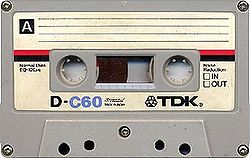[contextly_auto_sidebar id=”ogAgvEbhEk1KhQ645pd9wWfUDmJyWJe3″]
MOST of us have read about the high cost of new homes in a handful of cities. But new data shows that even renting in a wide range of places — Chicago, Miami, LA, Salinas, parts of Texas — has become impossible for the middle class. This may seem to have nothing to do with art or artists, but most of us who have joined the creative class — as writers, graphic artists, publicists, journos, and so on — still have to pay the rent.
This story, from the New York Times, documents something many of us know too well: Between homeowners kicked out of their homes by foreclosures, and young people who would otherwise buy their first house, there’s a huge amount of pressure on the rental market, driving prices beyond what even employed professionals and successful creatives can afford. Here’ the story:
For rent and utilities to be considered affordable, they are supposed to take up no more than 30 percent of a household’s income. But that goal is increasingly unattainable for middle-income families as a tightening market pushes up rents ever faster, outrunning modest rises in pay.
The strain is not limited to the usual high-cost cities like New York and San Francisco. An analysis for The New York Times by Zillow, the real estate website, found 90 cities where the median rent — not including utilities — was more than 30 percent of the median gross income.
And in many cities, it’s a lot higher — 40 percent of earnings or more.
It’s more proof that the Great Recession did not hit all of us equally. Landlords are coming out of it okay. Those of us who survive by working and paying rent or a mortgage have not been as fortunate. Being an artist, or connected to the art or literary or music world, offers no relief from the larger dyna mic.
mic.
ALSO: Vinyl revivalism I get. It’s hard to imagine nostalgia for the cassette tape, but it seems to be taking hold, at least in the UK. A new story, in the BBC, reports that young folk — the kind who buy recorder music much less than their elders — are buying cassettes as artifacts. One in 1o young adults bought a tape over the last month, a survey reports — an odd kind of commodity fetishism.
“There’s definitely a novelty value with cassettes at the moment, particularly as we suspect a high proportion of them are collectibles sitting on a shelf and never played,” said Maurice Fyles, who worked on the research ahead of Record Store Day.
Over half of the people who do this bought a vinyl record, 48% a CD and 23% an audio cassette tape that they have no intention of ever listening to.
Strange as this may seem — and I have no fondness for the cassette tape — we’re in favor of anything that keeps record stores open. Is the eight-track revival next?
BY THE WAY: Let me offer a big CultureCrash congratulations to Mississippi-born/Alaska-dwelling composer John Luther Adams for his Pulitzer. I was lucky enough to see one and a half of his pieces at Ojai Festival last year. (California’s John Adams was a finalist.)
FINALLY: In my house, it’s always Jazz Appreciation Month. But since we have a national designation taking place throughout April, I’ll post this list of recent jazz records championed by my friend Ted Gioia, author of West Coast Jazz and other classics. Ted also listens to more music, in a wider range of genres, than just about anyone I know.
Here‘s his list of “25 recent jazz albums you really ought to hear,” on the Oxford University Press site. They’ll publish his next book, Love Songs, early next year. Of the records he lists, let me offer my own praise for a live set recorded by the late jazz guitarist Joe Beck. The album, Get Me, comes out this week.

Frankly I wouldn’t believe a word reported by the BBC. It’s all dictated in the corridors of government, and then pasted up on BBC websites by loyal NATO-loving automatons. It’s a discredited organisation which gets its funding from an ilegal medieval tithe on televisions. They can visit your home to check if you have paid – if you have not, you can be sent to prison for two years. That’s the modern-day crock that’s the BBC – and it’s not pretty.